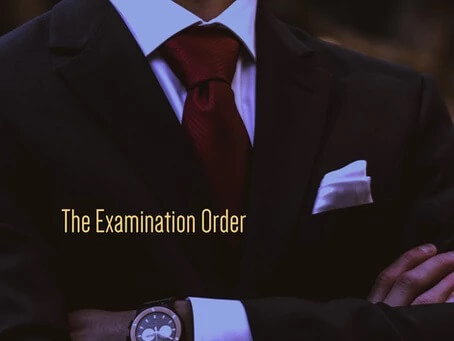

Once Judgment has been obtained, one enforcement option a judgment creditor has at their disposal is to issue an examination notice/order on a judgment debtor.
An examination order is a NSW court order that requires a person or company representative to attend court to give information about how they will be able to pay a judgment debt. A judgment debt is a debt a court has ordered to be paid. T he examination order is part of an examination process designed to give judgment creditors more information about the judgment debtor that owes them money. T his allows them to work out the most effective way to enforce the judgment debt. Failure to attend a court examination can result in an arrest warrant being issued against the judgment debtor, so it is essential that an examination order be complied with.
There are two steps to the examination process:
- Examination Notice:
The judgment creditor sends the judgment debtor an examination notice, which is a questionnaire-style document that asks for information about assets, liabilities, income and expenditure, and requests copies of relevant documents, such as payslips, tax returns and bank account statements.
- Examination Order:
If the judgment debtor does not respond to an examination notice within 28 days, the judgment creditor can apply to the court for an examination order. This is a court order that requires the judgment debtor to attend court to provide answers to the examination notice. This is called ‘examination’.
An examination order must be personally served on the judgment debtor. The examination order will include all details about when the judgment debtor needs to attend court, including the time, date and address of the court.
Once served with an examination order, the judgment debtor will need to:
- Attend court on the date in the examination order;
- Answer questions from the other party at court; and
- Bring copies of the documents listed in the examination order.
The examination is an informal process, rather than a formal interrogation by a Judge in open court.
If the judgment debtor refuses to answer questions, the judgment creditor may ask for an adjournment and for the Registrar to order him/her to produce certain documents.
If the judgment debtor has been properly served with an examination order and does not attend at the listed time and date, the court can either adjourn the examination until a later date or issue a warrant for the judgment debtor’s arrest.
Usually, the court will write to the judgment debtor and give him/her 14 days to pay the debt or go to court for examination. If they do not go to court, the court may issue a warrant for their arrest.
The court may also order that the judgment debtor pay the judgment creditor their costs of the examination order, for attendance at the examination and for the issue of the arrest warrant, all in addition to the judgment debt.
The best way to deal with an examination order is to pay the debt that is owed. If this is not possible, the judgment debtor should attend court on the date set out in the examination order and give all the information requested by the judgment creditor. Failing to do so could mean that the judgment debtor risks receiving an arrest warrant and paying even more costs to the judgment creditor than the debt originally owed.

